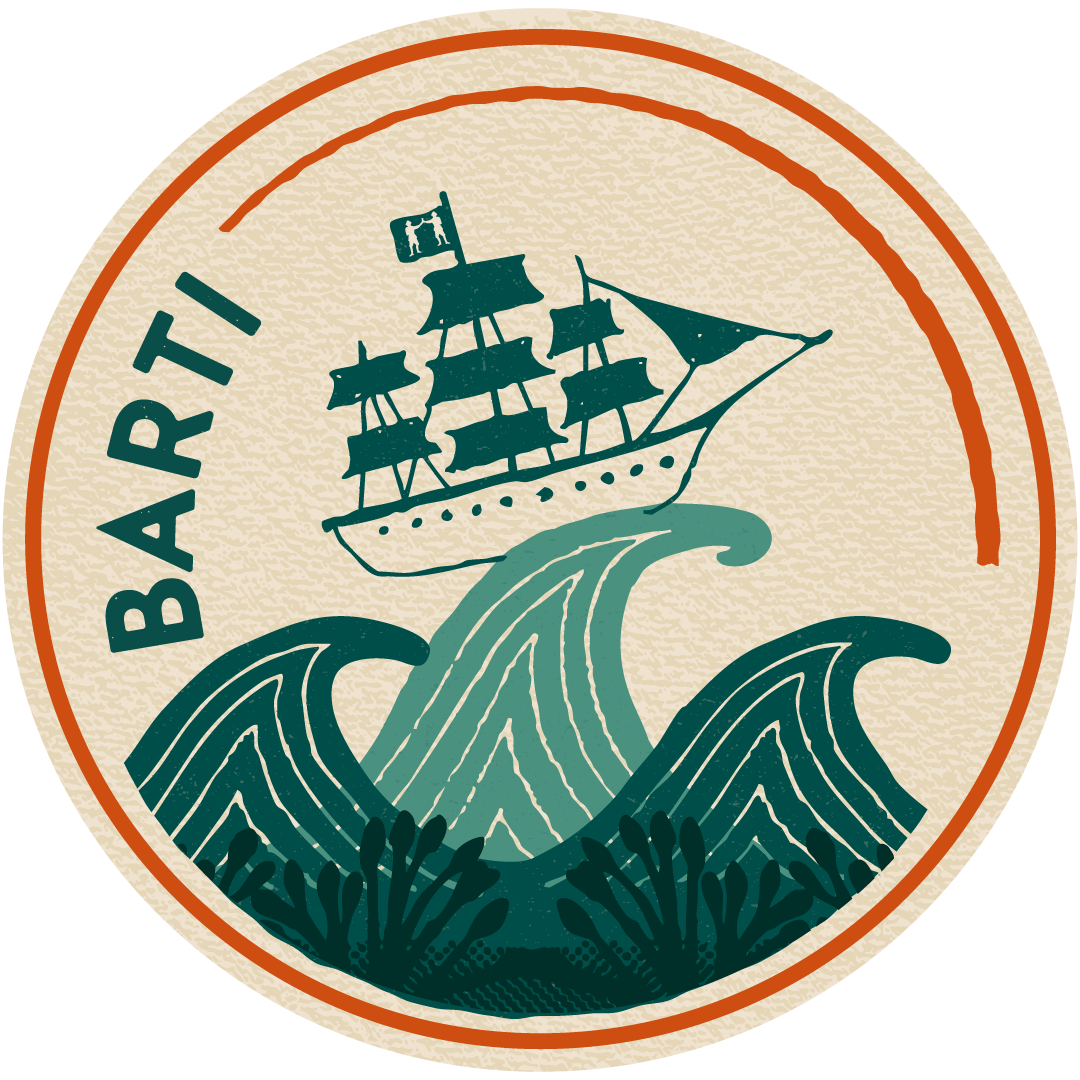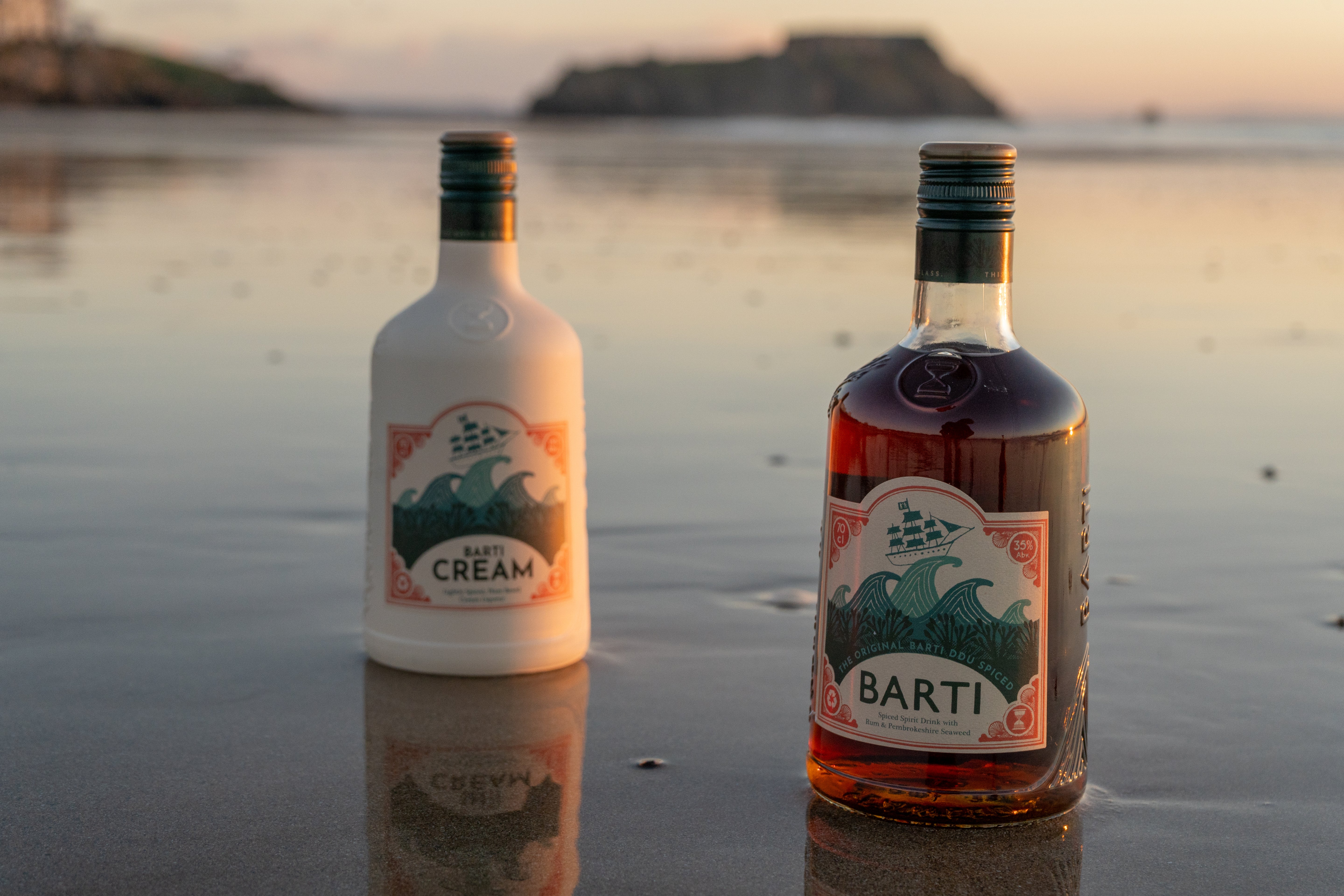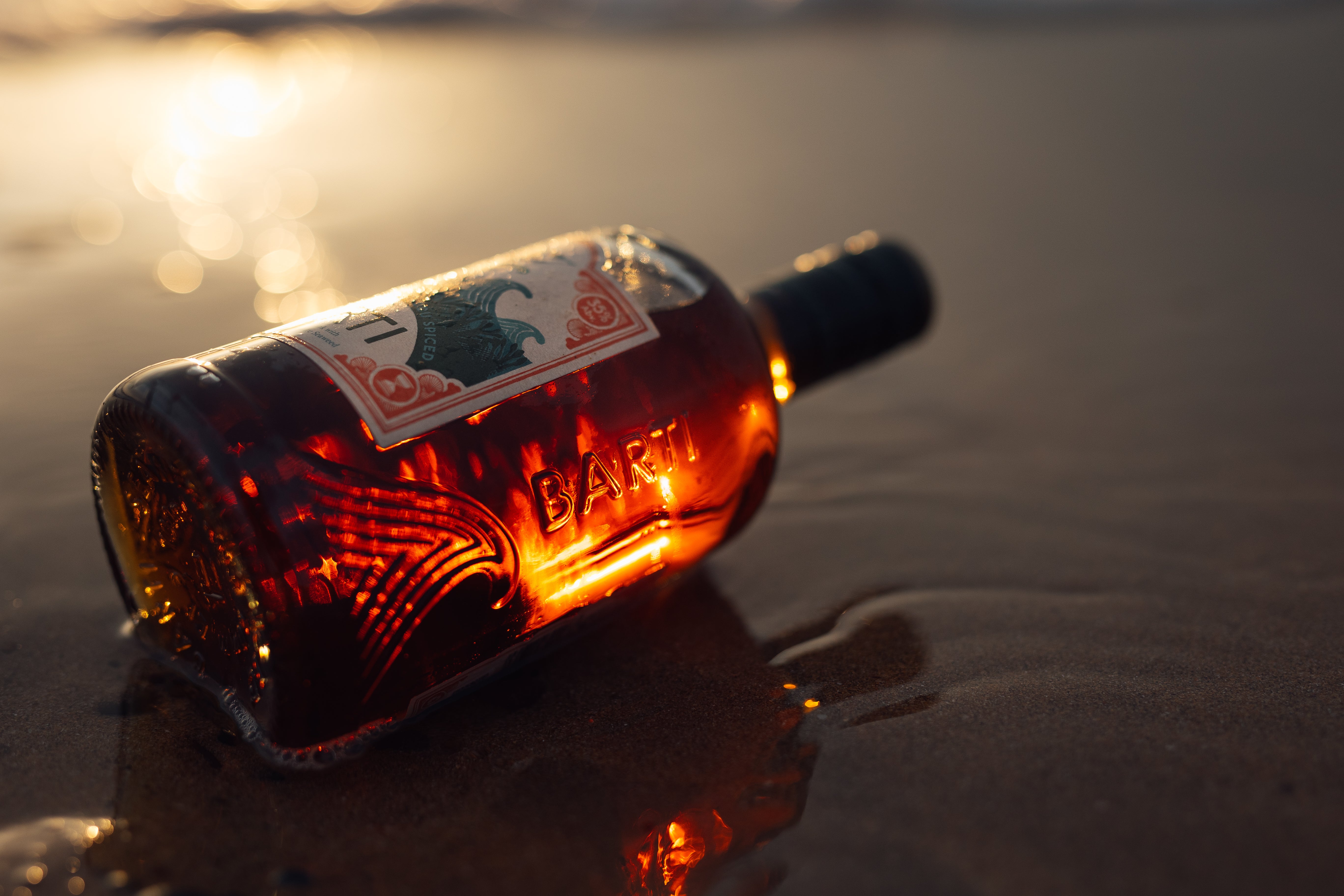5: Going Pirate Style

9/12/22 Secret Sea Garden Blog (That’s right, a blog inside a blog, includes further ranting.)
The “official” site would cost more than £20,000, without the support of SMART Wales and MEECE the project simply would not happen. For a small business running a struggling pub it is ludicrous to even consider it.
But I had another idea, “Shellfish lines”, according to Natural Resources Wales if you grow shellfish on single lines you do not need a license and if seaweed just happens to grow on it then so be it.
This gave me an idea for the “unofficial” project, “The Secret Sea Garden” in the waters outside my pub. I knew just the man to help me, my lobster man.
With natural rope delivered to Danny’s I was spurred on to find anchors, I had images of “natural” anchors of hessian sacks filled with baby oysters, or cages of mussels in reclaimed lobster pots to help fast track ocean recovery. But the cost of baby oysters/ mussels and the practicality of keeping them alive while we wait for a launch date meant this was far from an easy solution.
Especially at this time as the pub is losing money, bookings have dropped, no shows have increased which has meant spare cash for the secret sea garden was not available. This meant it was time to use my savings to help keep this project going.
So fanciful ideas of “life anchors” were out, just “normal anchors” back in. The problem was that Danny uses saddle anchors, basically bits of railway, 20 – 30kg a piece. Easy, but the supplier has been out of stock for 12 months. There were posher anchors available but these where £50 plus. So I phoned my old schoolmate Ryan, boat yard extraordinaire. He had a chain which some lobster men use for anchors, so thought this would be easy? Can I have 30 chain anchors please Ryan?
Not so, his van was in the garage, so he was working from home. I needed to cut the chain myself into 30kg blocks. Not so easy in the depths of winter, as while the pub was quiet I was deep in Barti Rum packing mode, Christmas orders were piling in but covid and all kinds of lurgy were raging so staff absence was up. Postal strikes meant our delivery window’s were limited to 2 or 3 days so I was tied to the Barti warehouse helping Fran (Barti MD) and crew to get the orders despatched.
Thankfully Adam my kitchen porter was willing and able to cut the chains. I won’t bore you with the absolute mountain of logistics issues that lead to me doing two trips with my old wooden trailer to get the anchors to where they needed to be. While standing in the pouring rain, wading through mud, unloading a tonne of sliced chain I did have a moment of thinking what the f**k am I doing?
But I was so close after 3 years of working on this, every tiny little step was a step closer. I left a little broken but eager to push. I called Danny (lobster man), “Danny, when can we get these lines out”? He was Christmas shopping in Bath, try next week, ok cool.
21/12/22 Secret Sea Garden Blog
Danny is busy, young family, Lobster & Mor shop, 2 fishing boats and a gin business. I’m busy, young family, pub, online seaweed business, and a rum business. We really do not have time to do this, the idea is ludicrous, it doesn’t make any financial sense and this close to Christmas me and Danny actually have a million other things we really should be doing. But we managed to confirm a day in the chaos of our lives.
December 21st 8am! Me, Danny and Joe (volunteer intern) rocked up at Danny’s yard and started rigging up our seaweed lines.
With light showers we set to work, Danny on knots, I can’t do knots, Joe on blowing up the fishing buoys and marking them, and me cutting up rope and basically moving chain back and forth. It was the first time I had seen the natural rope. I had ordered Sisal, Manilla, Jute and Hemp. This is the same rope we are using on the “official” project. None of it was marked so it was a quick call to the supplier and double check which was which. Pretty fundamental as the whole point of the secret sea garden was to see which “natural rope” produced the most life. Once sorted, we allocated buoys, set the anchors in fishing trays and rigged up and I double checked costs.
Again, it does not make sense and that is why no one has done this before. Normal fishing nylon rope is £35 for a 220m coil, my “hippy” natural rope is the following:
- 12mm Jute £80 (220m coil)
- 8mm Hemp £120 (220m coil)
- 12mm Sisal £165 (220m coil)
- 12mm Manilla £207 (220m coil)
So, my rope is at least double in cost compared to current standard rope and by all accounts much more inferior in terms of longevity in the water. On the flip side it is not made from plastic so will not release millions of tiny nano plastics into the sea. It makes no business sense but in terms of saving the world it’s a no brainer.
And that is part of the problem. Their views demonstrate what I mean by the sea being a complete mess. The bureaucracy to do anything new, to improve the way things are is immense, but somehow the archaic rights of old school industries go pretty much unregulated. Current policies provide a landscape where lobster wars are happening every day. Half of the fishing equipment you find on the beach is not from storms but from lobster crews cutting up other fishing crew kits in their ongoing battle of sea “turf” wars.
The system needs to change to bring it up to date so we all can benefit, not least the sea itself.
Our seas have been decimated for centuries and everyone is used to that, there are no “no-take” zones in Welsh waters. It doesn’t sound like a problem until you imagine the whole country without a National Park?
That is the current situation in our seas, and it is very wrong. It is the 21st century, the sea is one of Wales’ most important assets but it has been forgotten. If this was happening on land there would be a national outcry.
And that is why we plan to change this, planting trees is so last year…
Barti | The Back Story - With Origin Story Below...
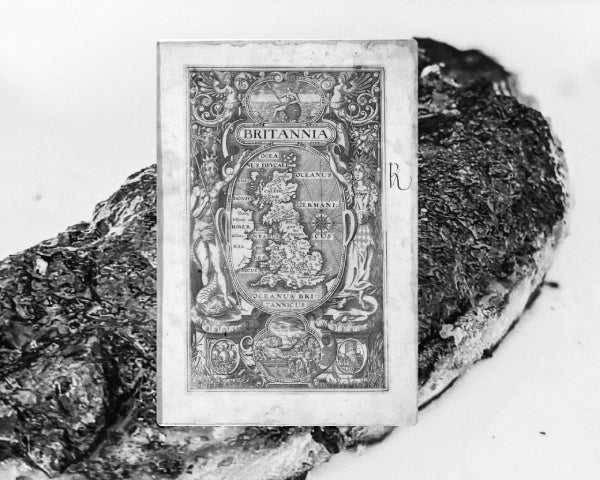
1607
The First Record Of Welsh People Eating Seaweed
Laverbread is recorded as a staple food, eaten in South Wales in William Camden’s work, Britania. The people of Swansea and the surrounding area are among the most charmed by this savoury green ingredient and devour it routinely, normally as part of their breakfast.
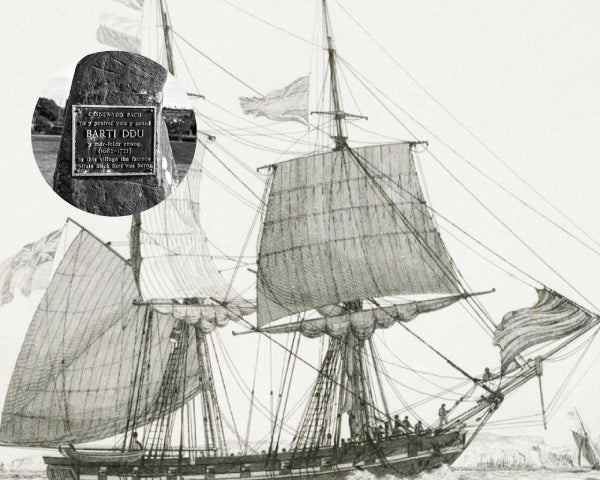
1682
A Young Boy Leaves Pembrokeshire
A boy called John Roberts was born in Casnewydd Bach (Little Newcastle in English), a tiny village in Pembrokeshire, West Wales. The boy grew and left home aged 11, he is recorded as joining the British Royal Navy in the lowest of ranks aged just 13.
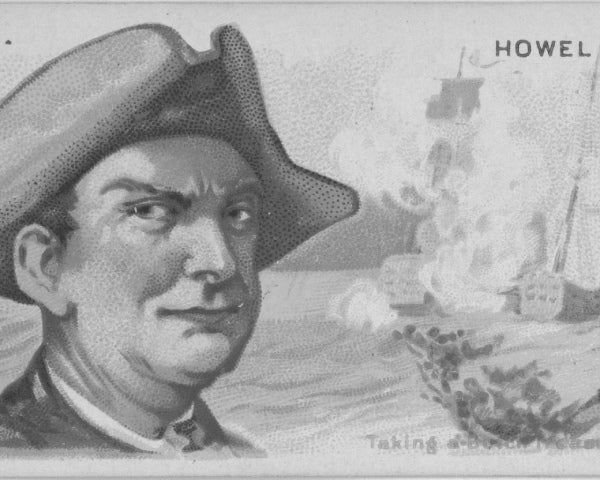
1719
Roberts Is Forced To Join His Pirate Captors
Age 37 Roberts’ long lowly career in the Navy has been habitually unremarkable until one day the ship he is working aboard is captured by pirates. Reluctant to join them, but less inclined towards being murdered, Roberts is initiated into the pirate crew which happens to be captained by another Pembrokeshire man, Howel Davies from Milford Haven.
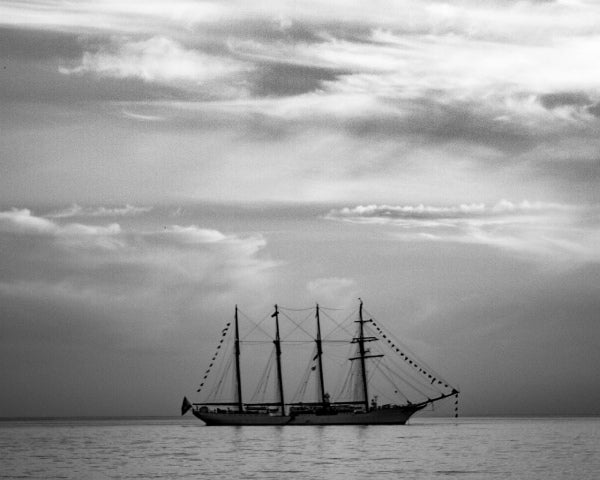
1720
Bartholemew The New Captain
Immediately hitting it off with his captor, John Roberts and Hywel Davies speak Welsh to one another and Davies values Roberts’ excellent navigational skills which were entirely overlooked by his former royal naval colleagues. When Davies is killed, the very popular second in command is immediately voted in as the new captain and takes on the alias name Bartholemew Roberts.

1721
The Most Prolific Pirate Career
Bartholemew is wanted dead by several of the richest countries in the world for his notoriously effective interceptions of Atlantic trading ships. Famed for his unprecedented success at seizing huge amounts of treasure over a short period, fiercely enforcing his pirate code which ensures every crew member (a third of whom were black) has an equal share and vote, ensuring his men don’t mistreat women, and being unapologetically unique in terms of style and attitude for the time.

1722
Forever Known As Barti Ddu or in English Black Bart
After his death Bartholomew Roberts becomes known as the infamous Black Bart, or Barti Ddu in Welsh. Barti Ddu was long constrained by poverty and the societal norms of the seventeen hundreds before his capture which ultimately freed him to be the individual he truly was.
It’s well documented that Bartholemew Roberts spent very little time in the company of women, some historians speculate that he was gay or in fact a she.
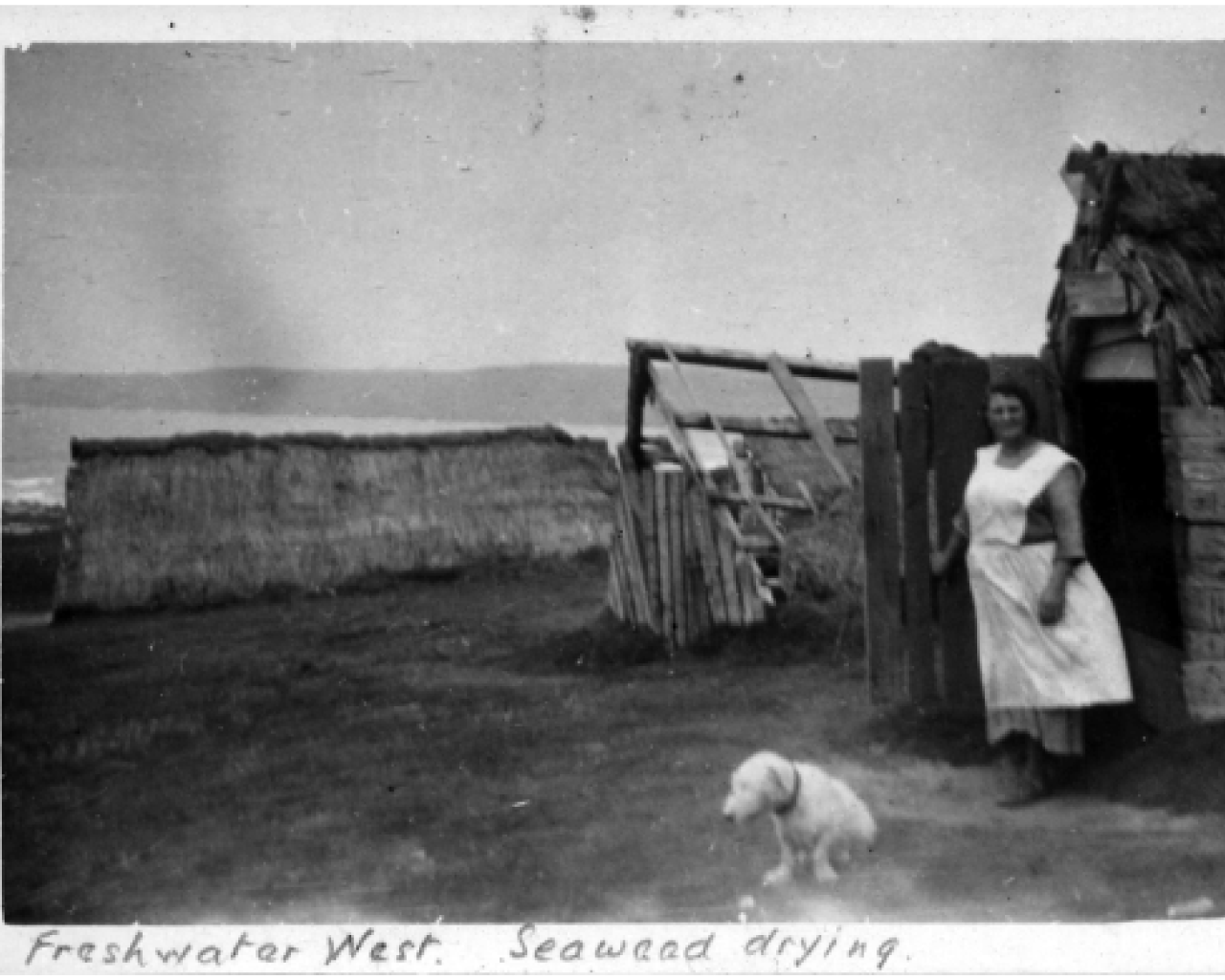
1879
A Pembrokeshire Shipwreck Over 100yrs After Barti's Death
The Thomas M Reed, bound for Liverpool from San Fransisco with tonnes of precious cargo. The ship never made it, wrecking off the Pembrokeshire coast. Cargo was strewn along Freshwater West, a secluded beach on the most South West tip of Wales, attracting people from as far as Swansea. The visitors noticed the abundant laver seaweed growing at Freshwater West realising it could be used to up production of their beloved laverbread. A deal was struck and laver began being picked by local women and transported to Swansea for processing.
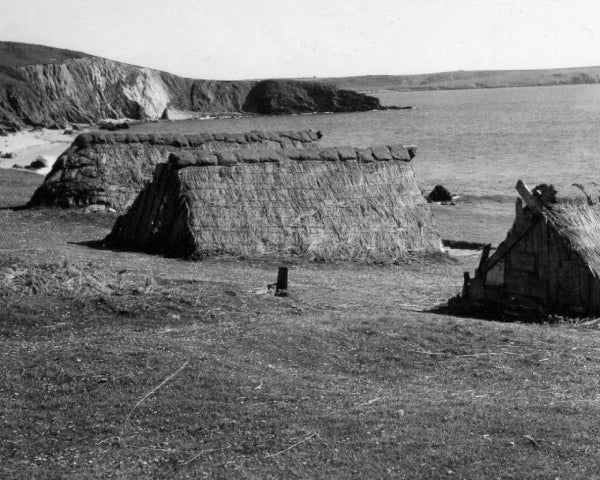
1940
Seaweed Collecting At Freshwater West Peaks Then Fades Away
The best of the seaweed harvesting years at Freshwater West are over as food fashions change and the availability of new and exciting delicacies arrive.
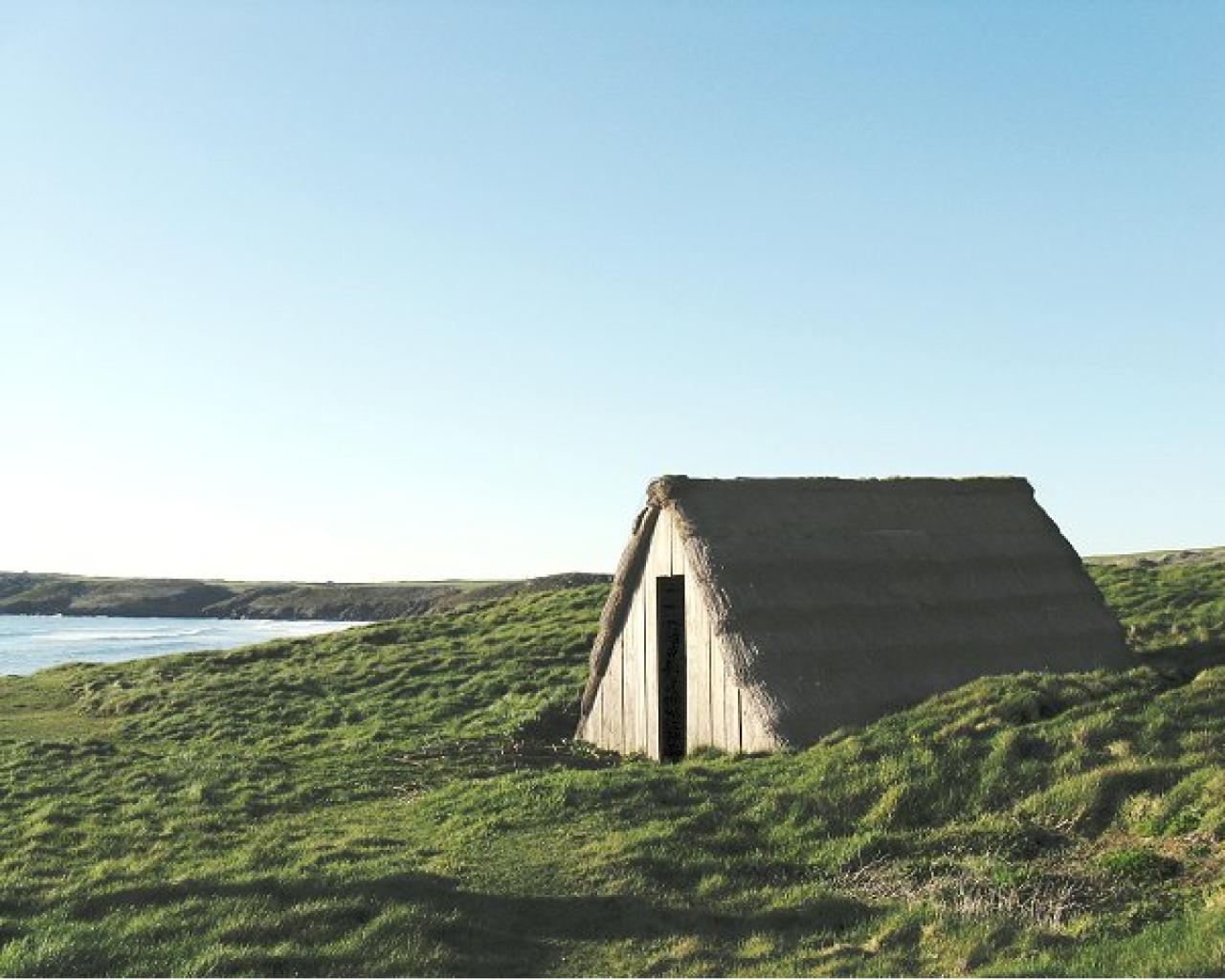
1995
A Physical Symbol Of Pembrokeshire's Seaweed Harvesting Heritage
The last remaining seaweed drying hut at Freshwater West beach is restored by The National Trust and becomes a grade two listed building.
Barti | The Origin Story
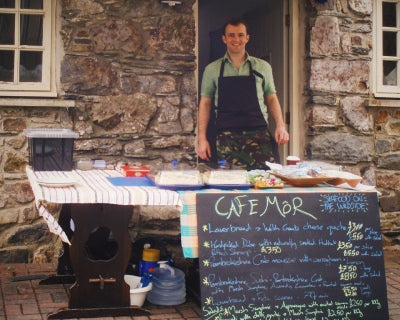
2010
Jonathan Williams is Homesick
Staring out of his landlocked Swindon office window, working in sustainability, but pining for Pembroke and his passions, cooking, story telling and the sea.
Captivated by harvesting wild laver seaweed at his local beach, from the preservation of the last drying hut. Jonathan acquires a taste for the seaweed himself and so inspired, he starts ‘The Pembrokeshire Beach Food Company’ trading his seaweed lobster rolls, sea plant salads and beach burgers at ‘Café Mor’. Jonathan quits his day job in Swindon.
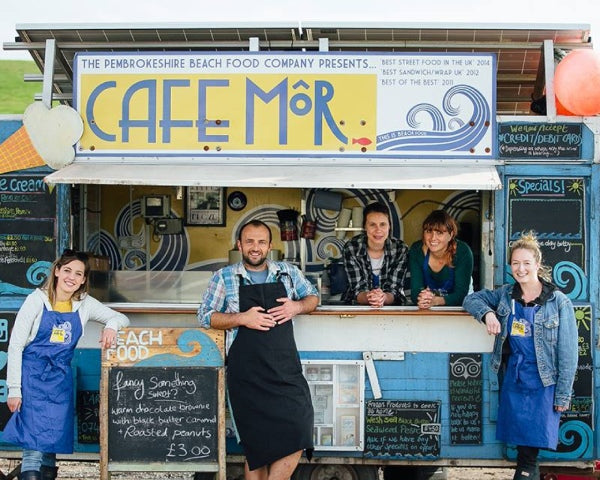
2012-2016
‘Cafe Mor’ Wows Crowds With Seaweed Inspired Menu
The seaweed inspired menu is a hit and wins gold at the British Street Food Awards and Café Mor caters for the athletes in the Olympic village, Glastonbury & other major UK events. Café Mor wins a permanent trade spot at home, where historical seaweed pickers worked from. Fran Barnikel joins on a temp graduate placement. Growth Continues.
His sideline of sea inspired condiments and crackers get traction and are commonly found in local shops.
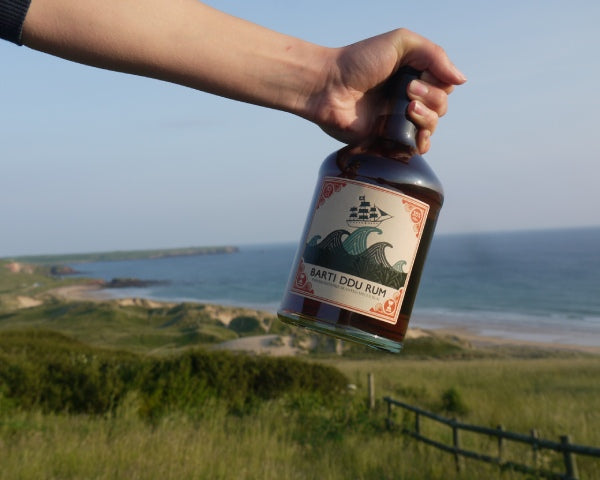
2017
BARTI DDU RUM IS BORN
Jonathan, takes two weeks off after the birth of his second daughter & returns to HQ with excitement & a new business idea, combining his favourite things; Seaweed, a great local story, this time a pirate 'Barti Ddu' & RUM. He'd already begun developing the flavour profile and sourcing expertly distilled rum from the Caribbean. Barti Ddu Rum was born.
Having always been a rum girl, it didn’t take much persuasion for Fran to get involved. Fran becomes a partner & later full time Managing Director.
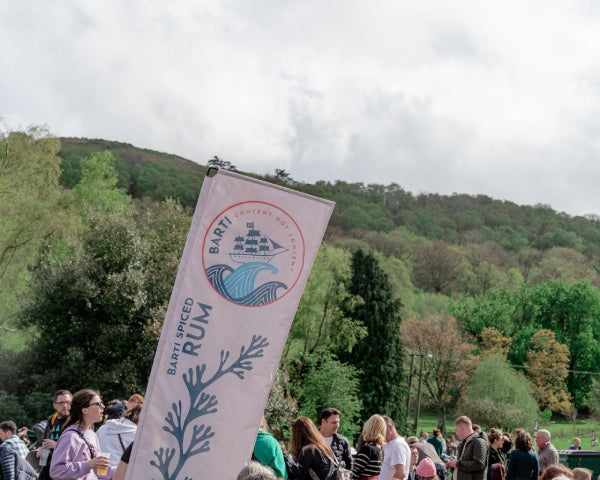
2019
Building A Brand
Barti Spiced Rum begins to really take off in Wales, especially as a new wave of rum lovers comes crashing in over the slowly plateauing gin craze. Barti builds itself as a brand for those much like Jonathan Williams. Driven by passion, creative, eco conscious and enthralled by the outdoors and what tales of adventure they have to offer, and are yet to facilitate.
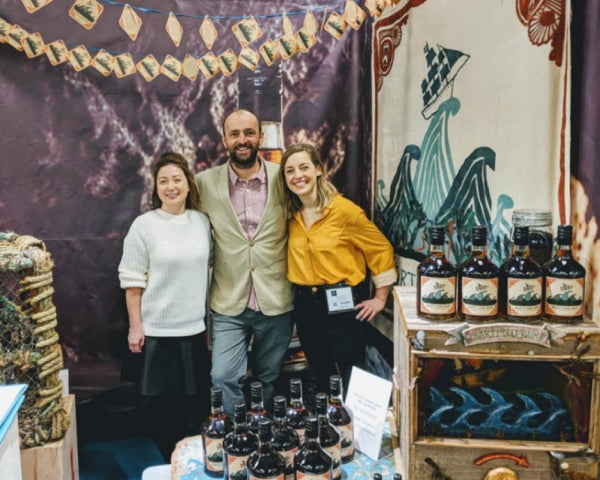
2020
Barti Rum Is Grateful To Its Loyal Following
Despite the obstacles of the pandemic Barti secures itself as the third best selling spirit in the portfolio of the biggest regional food service wholesaler in Wales, behind only mainstream brands Gordon’s Gin and Smirnoff Vodka. Amy Yamazaki joins the team heading up trade sales and expanding Barti’s presence in shops and bars across the UK.
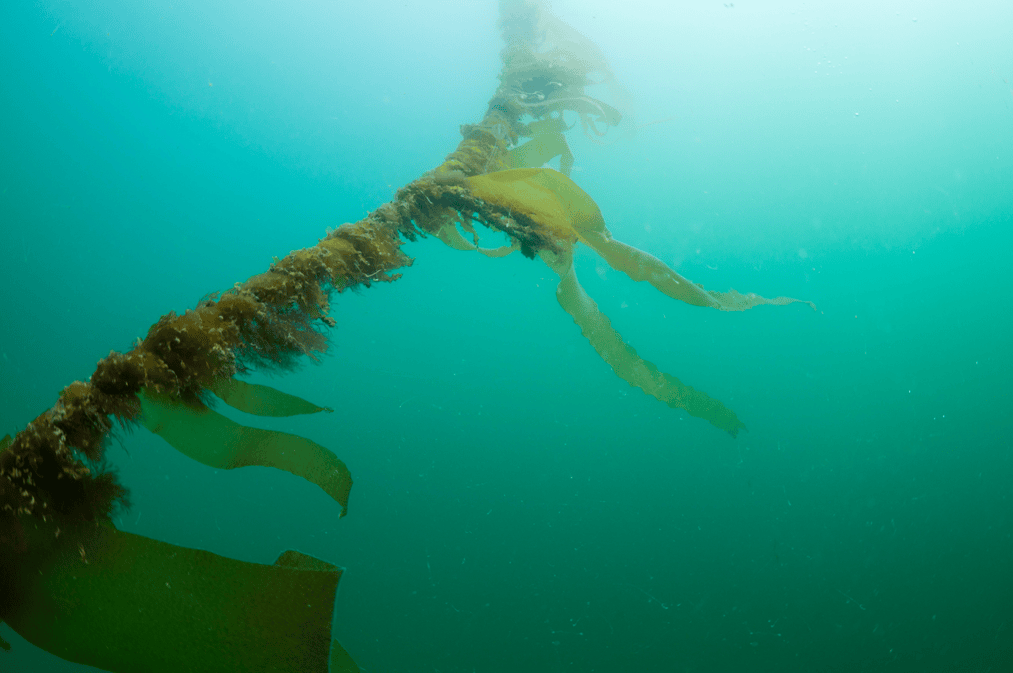
2023
Continuing to Grow, Prioritising Sustainability and Innovation
As the Barti Rum and Pembrokeshire Beach Food business’ continue to grow, Jonathan is now spear heading world leading research into the viability of seaweed as a carbon capture mechanism, something which could be a global game changer, and in the least, will make Barti Rum a carbon negative company in not too many years to come.
